Deciding to sell your manufacturing business is a pivotal moment, one that requires careful planning and precise execution. As a business owner, you need a clear understanding of the steps involved in transitioning from day-to-day operations to handing over the reins to a new owner. This guide is crafted to provide you with practical, straightforward advice on how to prepare your business for sale. Our goal is to ensure that you are well-equipped to maximize your business’s value and secure a smooth, profitable sale. Let’s dive into what you need to do to prepare your manufacturing business for the market.
Objective Assessment of Your Business
An objective assessment of your business is the foundation for a successful sale, and it involves a comprehensive evaluation of various aspects of your business to identify strengths, weaknesses, and areas for improvement. An unbiased perspective helps you understand your market position and what you can do to enhance your business’s appeal to potential buyers.
Conducting a Thorough Business Evaluation
The first step in preparing your manufacturing business for sale is conducting an objective assessment, which involves comprehensively evaluating your business to identify its strengths and weaknesses. An unbiased perspective is essential to understand how your company stands in the market and what areas need improvement to make it more appealing to buyers.
- Comprehensive Review: Examine all aspects of your business, including operations, financial performance, market position, and competitive landscape.
- SWOT Analysis: Identify your business’s strengths, weaknesses, opportunities, and threats to provide a clear picture of where you stand.
- Customer Feedback: Gather and analyze customer feedback to understand their satisfaction levels and identify areas for improvement.
- Employee Input: Involve key employees in the evaluation process to gain insights into operational efficiencies and potential improvements.
- Market Research: Conduct market research to compare your business against competitors and identify trends that could impact your sales.
A thorough business evaluation provides a solid foundation for making informed decisions on enhancing your business’s value and marketability. It also helps set realistic expectations and identify the steps before listing your business for sale.
Engaging Professional Valuation Services
A professional valuation is critical when you want to sell a manufacturing business. Engaging a third-party valuation service provides a credible assessment of your business’s worth as it helps set a realistic asking price and builds confidence in potential buyers. Accurate valuations can influence buyer perceptions and offers, ensuring you get the best possible deal.
- Credible Valuation: Hire a reputable third-party valuation service to get an accurate and unbiased assessment of your business’s worth.
- Documentation: Ensure that all necessary documentation, including financial records, asset inventories, and operational details, is provided to the valuation service.
- Market Comparisons: Use the valuation to compare your business with similar businesses recently sold in your industry.
- Adjustments: Make any recommended adjustments or improvements based on the valuation report to enhance your business’s appeal.
- Enhancing buyer Confidence: A reliable valuation is a powerful tool that can significantly enhance buyer confidence. By providing a solid basis for your asking price, it can streamline negotiations. Moreover, by offering a well-documented assessment of your business’s worth, you can effectively address potential buyer concerns and minimize doubts about the deal’s fairness.
Partnering with a skilled valuation expert and an experienced manufacturing business broker ensures an accurate and competitive valuation. This professional approach not only establishes a fair price but also showcases your commitment to transparency, attracting serious buyers and supporting a smoother transaction process. This transparency provides a secure and trustworthy environment for all parties involved.

Financial Preparation and Stability
Financial stability is a critical factor that buyers consider when evaluating a manufacturing business. Well-organized financial records and demonstrated financial health are essential to making your business attractive to potential buyers.
Organizing Financial Records
Well-maintained financial records are vital when you want to sell a manufacturing business. Buyers look for comprehensive and organized financial statements that reflect the business’s performance and stability. Ensure all financial documents, including profit and loss statements, balance sheets, and cash flow statements, are up-to-date and professionally presented.
- Comprehensive Financial Statements: You must prepare and organize profit and loss, balance sheets, and cash flow statements.
- Tax Records: Ensure all tax returns and related documents are up-to-date and accurately reflect your business’s financial status.
- Expense Reports: Detail all expenses, including operating costs, salaries, and capital expenditures.
- Revenue Records: Maintain accurate records of all revenue streams, including sales, contracts, and recurring income.
- Debt and Liabilities: Document any outstanding debts, loans, and liabilities.
Organizing financial records presents a professional image to potential buyers and facilitates a smoother due diligence process.
Demonstrating Financial Health
Buyers scrutinize key financial metrics to gauge the health of a business brokerage firm. Metrics such as gross margin, EBITDA, and net profit margin are crucial indicators of fiscal stability. Implement strategies to improve these metrics before the sale, such as reducing unnecessary expenses, optimizing pricing, and enhancing revenue streams. A financially stable business attracts higher offers and more serious buyers.
- Key Financial Metrics: Highlight important financial metrics such as gross margin, EBITDA, and net profit margin.
- Cost Management: Implement strategies to reduce unnecessary expenses and improve cost efficiency.
- Revenue Optimization: Explore opportunities to enhance revenue through pricing strategies, product diversification, and market expansion.
- Profitability: Demonstrate consistent profitability over time to build buyer confidence.
- Cash Flow Management: Ensure robust cash flow management practices to show financial stability.
By demonstrating strong financial health, you make your business more attractive to buyers who are looking for stable and profitable investments.

Enhancing Operational Efficiency
Operational efficiency is a key selling point for a manufacturing business. Buyers seek businesses that sustain high productivity and run smoothly without major disruptions.
Streamlining Production Processes
Operational efficiency is a major selling point for manufacturing companies for sale. Streamlining production processes boosts profitability and showcases the business’s ability to maintain productivity. Review your production workflows and implement improvements to minimize waste, reduce downtime, and enhance overall efficiency without disrupting daily activities.
- Process Optimization: Review and optimize production workflows to minimize waste and improve efficiency.
- Technology Integration: Implement advanced technologies and automation to enhance productivity and reduce operational costs.
- Quality Control: Maintain strict quality control measures to ensure consistent product quality and customer satisfaction.
- Supply Chain Management: Optimize your supply chain to reduce lead times and improve reliability.
- Safety Measures: Enhance workplace safety, including installing safety features like non-slip stairways and proper signage to prevent accidents.
Ensuring Business Self-Sufficiency
A self-sufficient manufacturing business for sale is more attractive to buyers as it reduces dependency on the current owner. Establishing a strong management team and delegating key responsibilities ensures the business can operate smoothly without the owner’s constant involvement. Implementing robust management structures and processes can significantly increase the business’s appeal and value.
- Management Structure: Establish a strong management team capable of running the business independently.
- Delegation: Delegate key responsibilities to managers and employees to reduce dependency on the owner.
- Training Programs: Implement training programs to ensure employees are skilled and capable of handling various aspects of the business.
- Standard Operating Procedures (SOPs): Develop comprehensive SOPs to guide daily operations and ensure consistency.
- Employee Retention: Focus on employee retention strategies to maintain a stable and experienced workforce.
Ensuring business self-sufficiency makes your business more attractive to buyers who are looking for a smooth transition and minimal disruption.
Strategic Planning and Market Positioning
Strategic planning and effective market positioning are essential to highlight the unique aspects of your business and attract the right buyers.
Identifying Value Drivers
Understanding what makes your manufacturing business attractive to buyers is crucial. Identify and highlight your business’s unique selling points, such as proprietary technologies, strong customer relationships, or niche market positions. Emphasizing these value drivers can set your business apart from competitors and attract premium offers.
- Proprietary Technologies: Highlight any proprietary technologies or innovations that set your business apart.
- Customer Relationships: Showcase strong customer relationships and long-term contracts that provide stability and recurring revenue.
- Market Position: Emphasize your business’s position in niche markets or segments with high growth potential.
- Brand Reputation: Leverage your brand reputation and market recognition to attract premium offers.
- Scalability: Demonstrate the scalability of your business model and growth potential.
Identifying and emphasizing these value drivers can make your business more appealing to buyers and justify a higher asking price.
Marketing Your Business Effectively
Effective marketing is essential to reach the right buyers for your manufacturing business. Develop targeted marketing strategies that highlight your business’s strengths and value drivers. Utilize advanced technologies and a critical path approach to ensure your marketing efforts are precise and impactful, reaching potential buyers locally and globally.
- Targeted Marketing Strategies: Develop targeted marketing strategies that reach the right buyers, including industry-specific advertising and outreach.
- Online Presence: Enhance your online presence through a professional website, social media, and digital marketing campaigns.
- Critical Path Approach: Utilize a critical path approach to marketing, ensuring your efforts are focused and efficient.
- Global Reach: Leverage technology to reach potential buyers locally and globally, expanding your pool of interested parties.
- Professional Representation: Work with an experienced business broker who can effectively market your business and negotiate on your behalf.
Effective marketing with the help of an expert business broker ensures that your business is presented in the best possible light and reaches a wide audience of potential buyers.
Legal and Compliance Considerations
Legal and compliance issues can significantly impact the sale of your manufacturing business. Ensuring all legal aspects are in order is crucial to prevent delays and build buyer confidence.
Ensuring Legal Compliance
Before selling a manufacturing business, ensure all legal aspects are in order. Review contracts, agreements, and regulatory compliance to address potential issues during the sales process. Resolving legal matters in advance can prevent delays and build buyer confidence.
- Contract Review: Review all contracts and agreements to ensure they are up-to-date and legally compliant.
- Regulatory Compliance: Ensure compliance with industry regulations, safety standards, and environmental laws.
- Intellectual Property: Protect your intellectual property, including patents, trademarks, and copyrights.
- Employment Laws: Ensure compliance with employment laws and regulations to avoid potential legal issues.
- Dispute Resolution: Address any ongoing legal disputes or liabilities before listing your business for sale.
Ensuring legal compliance helps prevent potential issues during the sales process and builds buyer confidence in your business.
Protecting Confidential Information
Confidentiality is paramount when selling a business. Implement measures to protect sensitive information, ensuring only qualified buyers with signed confidentiality agreements can access critical business details. Maintaining confidentiality safeguards your business’s interests and minimizes risks during the sales process.
- Confidentiality Agreements: The potential buyers must sign confidentiality agreements before disclosing sensitive information.
- Data Security: Implement robust data security measures to protect sensitive business information.
- Controlled Access: Limit access to confidential information to qualified buyers only.
- Non-Disclosure Agreements (NDAs): Use NDAs to protect your business’s intellectual property and trade secrets.
- Secure Communication: Ensure all communication with potential buyers is secure and confidential.
Protecting confidential information safeguards your business’s interests and minimizes risks during the sales process.
Your Path to a Successful Sale
Preparing your manufacturing business for sale in Wisconsin requires meticulous planning and execution. Conducting a thorough business assessment, meticulously organizing financial records, optimizing operational efficiencies, and ensuring full compliance with legal requirements can enhance your business’s value and appeal to potential buyers. Working with experienced business brokerage firms like Lake Country Advisors ensures you navigate this complex process effectively, maximizing your chances of a successful sale. Contact Lake Country Advisors for a confidential consultation to get started on your journey to selling your manufacturing business.





